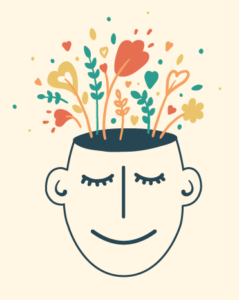Grieving clients have some of the most heartbreaking stories that we see as clinicians. Your client’s world has been toppled following the loss of a loved one, and in addition to missing that person, your client is now questioning what they know about themselves and the world. Paralyzing grief has made even the simplest tasks difficult for them, and you’re overwhelmed because nothing that you do seems to help.
Watch Dr. Erica Sirrine, Ph.D., LCSW, FT, as she walks you through over 60 interventions that you can use to help your grieving clients find hope and heal. Drawing on her expertise as a bereavement counselor and educator, Dr. Sirrine blends remarkable case studies with creative intervention strategies for an engaging and unforgettable workshop that will arm you with the skills you need to be an effective therapist for grieving clients.
Whether your client is experiencing feelings of premature grief due to the anticipated death of a loved one, pain and loss following a divorce, or feelings of disbelief and shock following a traumatic death, this workshop will prepare you to skillfully intervene.
Watch this seminar and discover:
- Over 60 interventions to help clients mourn, reconcile their losses & discover hope
- Assessment & treatment techniques for children, adolescents & adults
- Session topics & treatment approaches for individuals, groups & families
- Strategies to treat clients dealing with anticipatory grief
- Techniques & ideas for facilitating bereavement groups & grief camps
Best of all, upon completion of this training, you’ll be eligible to become a Certified Grief Informed Professional (CGP) through Evergreen Certifications. Certification lets colleagues, employers, and clients know that you’ve invested the extra time and effort necessary to understand the complexities of grief counselling. Professional standards apply. Visit www.evergreencertifications.com/CGP for details.
Purchase today to discover the ultimate grief treatment toolbox and revolutionize your treatment of grieving clients!
CERTIFICATION MADE SIMPLE!
- Simply complete this seminar and the post-event evaluation included in this training, and your application to be a Certified Grief Informed Professional through Evergreen Certifications is complete.*
Attendees will receive documentation of CGP designation from Evergreen Certifications 4 to 6 weeks following the program.
*Professional standards apply. Visit www.evergreencertifications.com/CGP for professional requirements.
Objectives
- Analyze the differences in the clinical presentation of depression as compared to bereavement.
- Evaluate developmentally appropriate grief symptomatology across the lifespan.
- Develop individualized therapeutic interventions for bereaved children, adolescents, adults and families using various modalities.
- Identify continuing bonds after death and their relevance to clinical practice with bereaved clients.
- Develop a support group for bereaved children, adolescents, and/or adults.
- Utilize therapeutic techniques to address client grief associated with other forms of loss including divorce, chronic illness, military deployment and termination of parental rights.
Outline Types of Grief & Their Implications for Treatment
- Grief vs. mourning
- Depression & bereavement: A distinction
- Secondary losses after death
- Non-death losses
- The problem with “getting over it”
- Misconceptions about grief & mourning
- Limitations of the research & potential risks
Assessment: Intake Considerations for Grieving Clients
- Grief & coping models
- Factors that influence the mourning process
- Assessment of continuing bonds
- Loss line: The ultimate assessment tool
- Normal vs. complicated grief vs. prolonged grief
- Persistent Complex Bereavement Disorder
Assessment of Grief & Loss in Children & Adolescents
- How children, adolescents & adults cope differently
- Considerations for different age groups
- ”De-code” the meanings of behaviors
- Six common questions following a death
- ”Things we want adults to know about our grief”
- Signs of concern/red flags
Interventions & Strategies for Anticipatory Grief
- Normalize the dying process & grief experience
- Model healthy mourning behaviors
- Spot opportunities for memorialization
- Provide death education & practical support
- Strategies to prepare
OVER 60 INTERVENTIONS TO PROMOTE HEALING WHEN IT’S TOO HARD TO TALK
Therapeutic Games
- Preschool/Early Elementary
- Doll house scene depiction
- Puppets & stuffed animals
- Sand tray therapy
- Youth
- Therapy ball
- Shades of feelings
- Card games
- Youth & adults
- Constructive use of punching bags/pillows
- Topic starters
- Questions games
- Group sharing: Cards, web of feelings
- …and more
Art with Children, Adolescents & Adults
- ”I am” board
- Colors of grief
- Support circles
- Memory peacock
- Photo flower pot
- Clay/Play-Doh
- Photography
- Memory boxes & stones
- …and more!
Poetry, Writing & Music Interventions for All Ages
- Bibliotherapy
- Journaling
- Poetry: “I am” exercise
- Letter writing
- Remembrance music
- Song/rap writing
- Sticky note regrets
- …and more!
Memorialization Rituals
- Candle-lighting
- ”I remember” book
- Online memorial page
- Rice paper/balloon release
- Memory patio stones
- Tree planting
- …and more!
Interactive Activities for Healing as a Family
- Web of feelings
- Labyrinth with reflection stations
- Memorial service
- ”Broken to whole”
- Bibliotherapy for families
- Holiday activities: Memory ornaments & stockings
- …and more!
Grief & Loss Support Groups for Children, Adolescents & Adults
- Grief camps for kids
- Support group considerations
- Family involvement
- Curriculum & session topics (for individual therapy too!)
Target Audience
- Social Workers
- Counselors
- Psychologists
- Chaplains/Clergy
- Marriage & Family Therapists
- Nurses
- Thanatologists
- Case Managers
- Physicians
- Other Mental Health Professionals
- Child Life Specialists

